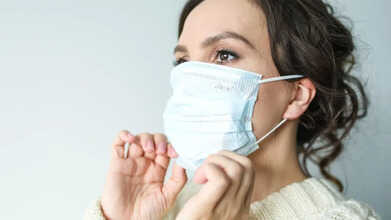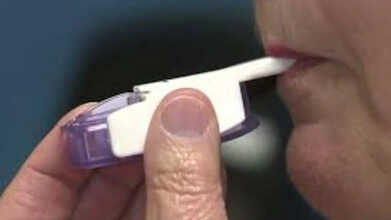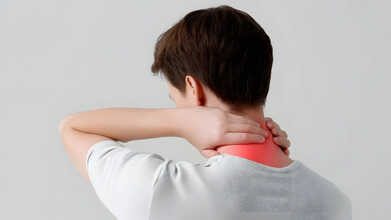- Health Conditions A-Z
- Health & Wellness
- Nutrition
- Fitness
- Health News
- Ayurveda
- Videos
- Medicine A-Z
- Parenting
Hard Day At Work Might Leave You Snappy, Burned Out, Impatient- Researchers Explain Why

Hard Day At Work Might Leave You Snappy, Burned Out, Impatient- Researchers Explain Why
It was another long, grueling day at work. As Sandhya sat in traffic, she could feel the frustration bubbling up — not because of the cars lined up in front of her but because every small inconvenience suddenly felt like a monumental task. Her patience was wearing thin, and Sandhya couldn’t shake the feeling of exhaustion, even though I hadn’t physically exerted myself.
If you’ve ever felt emotionally depleted after a day filled with tough decisions, you’re not alone. Mental exhaustion is real, and recent studies are shedding light on how it affects us, especially our interactions with others.
Mental fatigue, or “ego depletion,” is a concept in psychology that suggests our willpower and mental resources are limited. When we spend a lot of time making decisions or exercising self-restraint, these resources get depleted. According to a study by the IMT School for Advanced Studies Lucca in Italy, exercising self-control can exhaust parts of our brain associated with decision-making and impulse control, causing us to act more impulsively or aggressively when mentally drained.
This phenomenon was tested by researchers who asked participants to engage in mentally demanding tasks. In one setup, some participants watched emotional video clips while trying not to react, while others watched the same clips without any self-control requirements.
Those who held back their emotions showed increased activity in the prefrontal cortex, the brain region responsible for decision-making and self-control. This change in brain activity, marked by “delta waves,” is usually observed during sleep, suggesting that parts of their brains were “switching off” due to mental fatigue.
How Mental Fatigue Affects Behavior
After undergoing these tasks, participants were asked to play a game that measured their tendency towards cooperative or aggressive behavior. Remarkably, those who had exerted self-control during the initial tasks were more likely to behave aggressively compared to those who hadn’t. This suggests that mental exhaustion can dampen our ability to engage cooperatively and makes us more susceptible to impulsive or hostile reactions.
As Erica Ordali, the study’s lead author, points out, this has real-world implications. “If you feel mentally exhausted, it might be best to avoid difficult discussions or decision-making until you’re more rested,” she advises. This advice isn’t just for work-related stress — it applies to our personal relationships and everyday interactions, where mental fatigue can lead to misunderstandings or unnecessary conflicts.
Why is Ego Depletion Controversial?
Not everyone in the scientific community agrees with the concept of ego depletion. A 2020 large-scale study with over 3,500 participants found no strong evidence that mental exertion consistently leads to behavioral depletion. Despite this, Ordali’s research offers compelling insights into how mental exhaustion may affect specific brain functions, potentially influencing our behavior in measurable ways.
Coping with Mental Exhaustion
Given the potential impact of mental fatigue on behavior, taking breaks and allowing your brain to recharge becomes essential. Here are a few practical ways to manage mental exhaustion:
1. Breaks help replenish mental energy, especially after challenging tasks. Short walks, stretching, or even a few minutes of deep breathing can make a significant difference.
2. Avoid decision overload by delegating less important choices. Reserve your mental resources for what truly matters.
3. Techniques like meditation and mindfulness help restore focus, enabling better impulse control even when tired.
4. Juggling multiple tasks depletes mental resources faster. Try focusing on one task at a time, and you'll preserve more mental energy.
5. Be mindful of your mental state before making important decisions or having critical conversations. Sometimes, waiting until you’re rested can lead to better outcomes.
Have Flu Symptoms? NHS Shares Four Steps You Should Follow To Recover

Credits: Canva
The NHS has released fresh guidance on how to manage flu symptoms, setting out four simple steps that could help people recover faster. Influenza, commonly known as flu, is a highly contagious viral illness that affects the respiratory system, including the nose, throat, and lungs. It is marked by a sudden onset of fever, muscle aches, headaches, a persistent dry cough, and extreme tiredness, making it far more serious than the common cold.
Recent data from NHS England shows that in the first week of January, an average of 2,924 hospital beds across England were taken up by patients with flu. This figure reflects a nine per cent increase compared with the previous week.
With flu cases continuing to climb, the NHS has shared several important steps that people can follow to help support a quicker recovery.
NHS Shares Four Steps To Tackle Flu Symptoms 2026
In a recent update, NHS England warned that social gatherings during Christmas and New Year may have led to a resurgence of winter illnesses. NHS national medical director Professor Meghana Pandit said: “It is clear that the pressure on the NHS this winter is far from easing, with hospitals once again seeing a rise in patients admitted with flu and other respiratory viruses last week.
“The colder weather is also bringing more vulnerable patients to A&E with breathing difficulties, along with an increase in injuries caused by slips and falls in icy conditions, making this an exceptionally demanding period.”
According to the Mirror, she added: “Staff continue to work extremely hard, with teams across the country doing everything possible to ensure patients receive the care they need. It remains important for people to seek care as usual, and there are still many opportunities to get vaccinated and protect yourself against flu.”
Flu Symptoms 2026
The NHS says flu symptoms tend to appear suddenly and may include:
- A high temperature that comes on quickly
- Aches and pains throughout the body
- Feeling very tired or exhausted
- A dry, persistent cough
- A sore throat
- Headaches
- Trouble sleeping
- Loss of appetite
- Diarrhoea or stomach pain
- Feeling sick or being sick
Children may experience similar symptoms, but they can also have earaches and may appear more tired or less active than usual.
Flu Symptoms 2026: NHS Advice
The NHS states: “If you have flu, there are steps you can take to help yourself recover more quickly.”
- Rest and get plenty of sleep
- Keep yourself warm
- Use paracetamol or ibuprofen to reduce fever and ease aches and pains
- Drink plenty of fluids to prevent dehydration, aiming for urine that is pale yellow or clear
Flu Symptoms 2026: When To Seek Help?
You should contact NHS 111 or arrange an urgent GP appointment if you or your child have flu symptoms and:
- You are concerned about your baby’s or child’s condition
- You are aged 65 or over
- You are pregnant
- You have a long-term health condition, such as diabetes or a problem affecting the heart, lungs, kidneys, brain, or nerves
- You have a weakened immune system, for example due to chemotherapy or HIV
- Your symptoms have not improved after seven days
- You develop sudden chest pain
- You have trouble breathing
- You begin coughing up large amounts of blood
Inhaled Insulin: How Does This Needle-Free Option Work For People With Diabetes?

Credits: Afrezza
Cipla, a global name in inhalation therapies, has announced the launch of Afrezza, the world’s only rapid-acting inhaled insulin, in India. The drug is approved for adults with type 1 and type 2 diabetes to help manage high blood sugar levels and represents a notable change in how insulin can be delivered in a country facing a growing diabetes crisis.
For many patients, injecting insulin during long workdays or in public spaces can be uncomfortable or inconvenient. While insulin injections are widely used, awareness around inhaled insulin remains limited. Below, we explain how inhaled insulin works and what it means for people living with diabetes.
What Is Inhaled Insulin?
Inhaled insulin is a fast-acting form of insulin that is taken as a fine powder through an inhaler. Instead of being injected, it is breathed into the lungs, where it is quickly absorbed into the bloodstream to manage blood sugar spikes that occur after meals. This makes it a needle-free option for adults with type 1 or type 2 diabetes.
It begins working very rapidly, often just before or at the start of a meal, and exits the body sooner than injectable insulin. Because of this, it may lower the risk of insulin stacking and offers greater flexibility around mealtimes. Afrezza is currently the main FDA-approved inhaled insulin available.
How To Use Inhaled Insulin?
Unlike traditional insulin injections given under the skin, inhaled insulin is absorbed through the lining of the lungs, which allows it to enter the bloodstream quickly. “It functions like fast-acting insulin but starts acting sooner and also clears the body faster than conventional insulin,” said Dr Pranav Ghody, consultant endocrinologist and diabetologist at Wockhardt Hospitals, Mumbai Central, speaking to The Indian Express.The insulin comes as a dry powder and is taken using a small, discreet inhaler with single-use cartridges available in 4, 8, and 12-unit doses. It has been approved by the FDA for adults with type 1 and type 2 diabetes to help control blood sugar rises after meals. “Its absorption into the bloodstream is faster than injectable rapid-acting insulins such as lispro or aspart,” said Dr Hetashvi Gondaliya, as reported by The Indian Express.
How Does Inhaled Insulin Work For Diabetic People?
Before starting inhaled insulin, patients are required to undergo lung function tests. The insulin itself is identical to the insulin used in injections. What differs is the way it enters the body.
In simple terms, the insulin is not new, only the method of delivery is. Once inhaled, it is absorbed through the lungs, passes into the bloodstream, and helps control the rise in blood sugar levels that happens after eating.
Is Inhaled Insulin Better Than Injectable Insulin?
Inhaled insulin is not necessarily better for everyone, but it offers an alternative to injections. It works faster to control post-meal blood sugar levels and may appeal to people who dislike needles. However, it is less efficient than injected insulin, requires a specific inhaler, and is not suitable for all patients.
Studies show that blood sugar control is similar to injectable insulin, but inhaled insulin must still be used along with long-acting basal insulin. It is best viewed as an option rather than a replacement.
Is Inhaled Insulin Suitable For All Diabetic Patients?
According to the National Institutes of Health, inhaled insulin is not appropriate for everyone. It may be considered for adults with type 1 or type 2 diabetes who want a needle-free option or need rapid control of blood sugar after meals.
However, it is not recommended for people who smoke or have smoked in the past six months, or for those with lung conditions such as asthma, COPD, or bronchitis. It is also not approved for children or pregnant women. Lung health and ongoing insulin needs must be carefully evaluated before starting this treatment.
Always consult your doctor before switching to or starting inhaled insulin. Your healthcare provider can help determine whether it is safe and suitable for you based on your medical history and lung health.
Ignoring Neck Pain Could Be Dangerous, Doctors Warn Of Rare But Fatal Condition

Credits: Canva
People should be aware of a rare and unpredictable condition called SCAD. Spontaneous coronary artery dissection occurs when the inner layers of a coronary artery split away from the outer wall. When this happens, blood can leak into the space between the layers, leading to clot formation. If these clots grow large enough, they can block blood flow to the heart and cause a heart attack.
Doctors are still struggling to fully understand this condition. The cause remains unknown, and it often strikes suddenly in people who do not have the usual risk factors linked to heart disease. SCAD is most commonly seen in women between the ages of 45 and 53, although it can affect people of any age or gender.
What Is Spontaneous Coronary Artery Dissection?
SCAD is an acronym that can refer to different things, but it is most widely used to describe Spontaneous Coronary Artery Dissection. This is a serious heart condition in which a tear forms in one of the arteries supplying blood to the heart, potentially triggering a heart attack. SCAD is also the name of the Savannah College of Art and Design, a well-known creative university in the United States, and an Indian NGO working in the field of social change and development.
According to the British Heart Foundation, SCAD is a condition that “can’t currently be predicted or prevented.” The charity stresses the importance of seeking medical help if symptoms appear, so the condition can be identified as early as possible. Many of the warning signs are similar to those of angina or a heart attack, which can make it difficult to recognise.
Symptoms Of Spontaneous Coronary Artery Dissection
The symptoms of SCAD often resemble those associated with angina or a heart attack. These may include:
- Chest pain
- Pain or tightness in the arms, neck, jaw, back or stomach
- Feeling dizzy or lightheaded
- Shortness of breath or unusual tiredness
- Nausea
- Cold sweats or clammy skin
The British Heart Foundation advises anyone experiencing chest pain or these symptoms to call 999 straight away. One of the dangers of SCAD is that people may dismiss the symptoms, believing they are not at risk of a heart attack. Experts say the condition cannot be predicted or prevented.
How Is Spontaneous Coronary Artery Dissection Related To Neck Pain?
Neck pain can sometimes be linked to arterial dissections, which involve a tear in blood vessels supplying vital organs. In such cases, the pain is often sudden, severe, and felt on one side of the neck. It may appear on its own or develop before more serious symptoms, such as those associated with a stroke or heart-related event.
The pain occurs due to damage to the artery wall and should always be treated as a medical emergency. While neck pain is commonly associated with muscle strain, experts warn that, in rare cases, it can signal a much more serious underlying problem.
According to the American Heart Association, neck pain related to arterial dissection may present in the following ways:
- Location: Pain is usually felt on the same side of the head or neck as the affected artery.
- Type: The pain may be sudden, intense, throbbing, or feel like pressure, and is often different from a typical headache.
- Warning sign: Neck pain can be an early symptom of an arterial tear, sometimes appearing before other serious complications.
- Vertebral artery dissection: Often causes pain at the back of the neck and head.
- Carotid artery dissection: More commonly linked to pain at the front of the neck and head.
SCAD And Women
Around 80 percent of people diagnosed with SCAD are women, and the condition is known to occur during pregnancy or shortly after childbirth. Because it develops without warning, SCAD is often discovered only after a major medical event, such as a heart attack.
Treatment depends on the severity of the condition. Some patients are managed with medication to reduce the risk of blood clots, while others may require stents to keep the artery open. In rare cases, coronary artery bypass surgery is needed to restore blood flow.
The British Heart Foundation notes that receiving a SCAD diagnosis can be deeply unsettling, especially when it follows an emergency. Many patients report feeling isolated, largely because the condition is so rare and not widely understood.
© 2024 Bennett, Coleman & Company Limited

